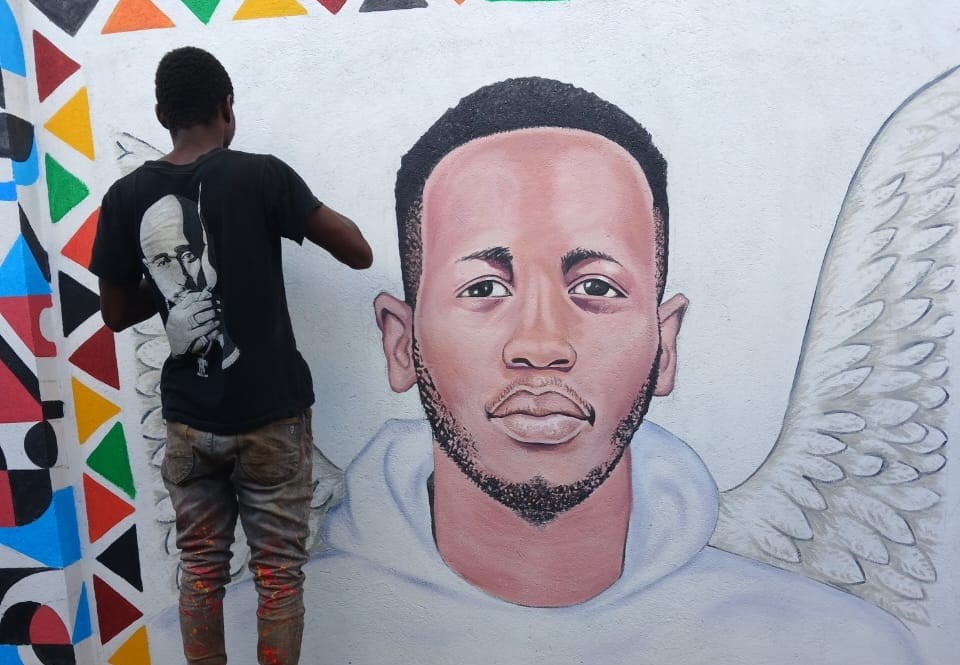Chanco travelling theatre returns
 In 1970, John Linstrum, with the help of Professor Mupa Shumba, must have built the most of resilient of engines for the vehicle they call the Chancellor College Travelling Theatre (CTT).
In 1970, John Linstrum, with the help of Professor Mupa Shumba, must have built the most of resilient of engines for the vehicle they call the Chancellor College Travelling Theatre (CTT).
Forty-four years later, with a few engines boil over here, a tyre puncture there and a regular change of oil and air filters, the vehicle is still travelling places.
But the recent engine overhaul that saw the group performing Long Live Vava at Nanzikambe Arts Space and Blantyre Cultural Centre amphitheatre has increased hope that days of college students treading the boards to change the theatre landscape might return.
The play CTT performed draws on surrealism in the world of the dead, tackling values of leadership in political, religious and social spheres.
The journey, however, started when Shumba, a member of the Makerere Travelling Theatre at Makerere University in Uganda, adopted the philosophy of taking plays to the people when he returned as an academic in the ’70s at Chancellor College then at Chichiri campus in Blantyre.
True to the principle that great drama does not arise from conditions in theatre, but from conditions in society, Shumba agrees that CTT was set up to help local drama.
“I sort of remember the idea was to help develop drama at the local level,” said Shumba who is now a lecturer at Mzuzu University.
Professor Chris Kamlongera, who performed alongside the likes of James Ng’ombe in plays Linstrum produced in his student days, is hopeful the days of thriving theatre will return.
“There was thriving theatre at Chancellor College at the Chichiri campus. I remember taking plays such as Every Man, where I played a lead role. We took the play to places such as Mlambe Hospital, Chilomoni and Bvumbwe,” said the Chancellor College principal who is an architect of the now global concept of theatre for development.
He recalls actors such as Kamdoni Nyasulu, Justice Mackson Mbendera, Viphya Harawa, Edge Kanyongolo and the late Stuart Kaminjolo. Other actors who made an imprint include Robin Zagwazatha, late Joe Chimwenje and Darwin Pangani
Kamlongera, who took over from James Gibbs in 1978, says CTT during his time and that of David Kerr, revolutinalised drama in the country as it travelled to secondary schools nationwide.
“When the campus moved to Zomba, there was a lot of important theatre activity. At Polytechnic, they were also doing something. We had the likes of Owen Mbilizi.
“Before we take a play out, it had to pass the test of Chirunga audience. They had to endorse it as a good production,” Kamlongera looks back.
He adds that the Office of the President and Cabinet asking CTT in 1981 to stage plays at a rural growth centre in Mbalachanda, Mzimba, is testimony of the footprints the group left.
“We had to perform a play in vernacular Mchira wa Mtondoni, adapted from Enoch Timpuza Mvula’s Lizard’s Tail (Mchira wa Buluzi). It freed theatre from the English-bound [genre] to accommodate Chichewa. That’s why groups such as Kwathu started,” he says.
In the early 90s, CTT saw development of playwrights and actors such as Smith Likongwe, Olex Kamowa, Maurice Newa,Jonathan Mbuna, Mateyu Sisya, Sunduzwayo Madise, Dingiswayo Madise, Hastings Bota, Steve Kungala, Grant Mgayi, Stella Hauya and Mayamiko Chikoti.
Newa, Airtel Malawi deputy director, was an economics student when he got involved with CTT and recalls that the students had passion for theatre and the group was well supported.
“We used to provide fun to colleagues and the nation and we loved drama. One time when we had a national trip, I remember the vehicle was supplied by the University of Malawi and we would lodge at constituent colleges of the university,” he says.
TCC went into doldrums in the late 90s, forcing some students to form Chancellor College Ensemble Theatre, which also died when the students left.
Theatre International director Chancy Mauluka, who was part of the College Ensemble Theatre, says there is need to institutionalise TCC if it is to succeed.
“They should look at issues of continuity and institutionalising it. It should not be merely driven by individual lecturers,” he said.
Likongwe, who is back at Chancellor College’s Fine and Performing Arts Department, says there is now dedicated staff to ensure the TCC vehicle is still running.





